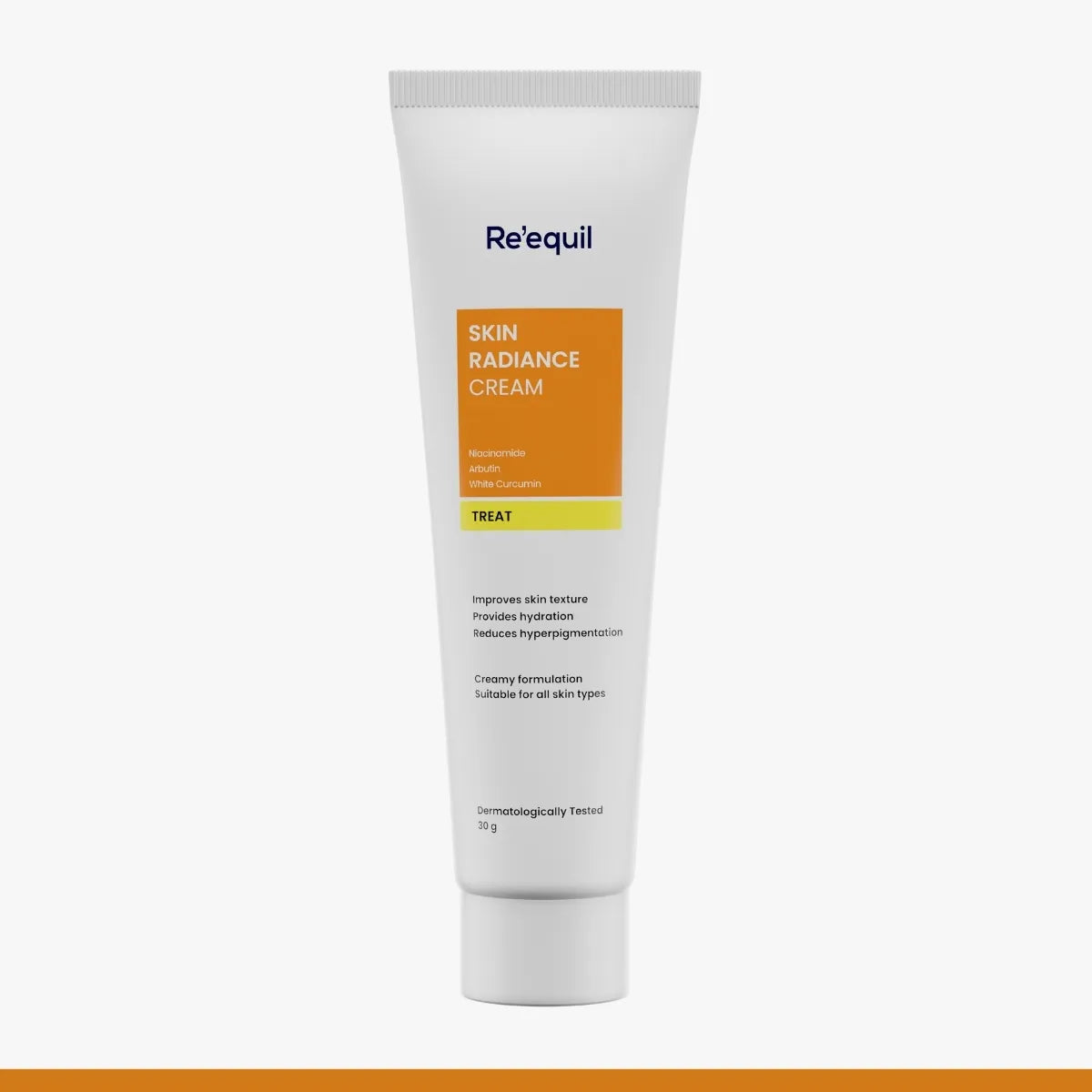When it comes to skincare, one size does not fit all. Your skin is as unique as you are, and understanding its specific needs is the first step to achieving a healthy, radiant complexion. The importance of choosing products based on your skin type cannot be overstated. Whether you have dry, oily, sensitive, or normal/combination skin, tailoring your skincare routine to your skin type can make a world of difference.
The key to successful skincare lies in "Ingredient Intelligence" - the ability to customise your routine with ingredients that cater to your specific skin needs. Let us explore the significance and benefits of selecting products suitable to your skin type and the importance of ingredients to inherently nurture your skin.
Identifying your skin's unique identity
Your skin is a reflection of your overall health, and understanding your skin type is the first step in developing a skincare routine that will promote your skin's wellbeing. There are four primary skin types: Oily, dry, combination and normal. Each has its own distinctive characteristics, and recognizing these traits is essential for effective skincare.
Oily skin
It is characterised by excessive sebum production. This excess oil can lead to enlarged pores, acne and a shiny or greasy appearance, especially in the T-zone (forehead, nose and chin). To identify oily skin, cleanse your face in the morning and, if it becomes oily by midday, you most likely have oily skin.
Dry skin
It often feels tight, flaky and may exhibit a rough texture. Fine lines can be more noticeable, and the complexion may appear dull. To identify dry skin, wash your face before bed and observe it in the morning. If it feels tight and looks parched, you likely have dry skin.
Combination skin
It combines elements of both oily and dry skin. The T-zone (forehead, nose, and chin) is often oily, while the cheeks may be dry or normal. Identifying combination skin requires paying attention to different areas on your face. If you notice differences in oiliness and dryness, you may have combination skin.
Normal skin
Normal skin is often characterised by minimal blemishes, small, nearly invisible pores and a well-hydrated, balanced complexion. Identifying normal skin is straightforward. After washing your face, if your skin feels comfortable and exhibits no excessive oil or dryness, you likely have normal skin.
Sensitive skin
Those with sensitive skin have an increased reactivity to environmental factors or products. If your skin is easily irritated, or you experience reactions such as itching, redness, burning or dryness when exposed to certain stimuli, it is highly likely that you have sensitive skin.
Importance & benefits of choosing products based on your skin type
Selecting skincare products that match your skin type is more than just a beauty regimen; it is a form of self-care. By tailoring your skincare routine to your skin type, you can balance your skin’s pH levels, reduce allergic reactions, improve skin appearance and get optimum benefits from your skincare products.
Customised skincare - Ingredients for your skin type
Your skin is a unique canvas that deserves personalised care. To truly unlock your skin's potential and maintain its health and radiance, it's essential to customise your skincare routine with ingredients tailored to your specific skin type. Your skin's characteristics, such as its oiliness, sensitivity, hydration level and tendencies towards breakouts or dryness, are unique to you.
Ingredients for dry skin
Those with dry skin face issues like flakiness, tightness, and an increased risk of premature ageing. The importance of selecting the right ingredients for dry skin cannot be overstated. The key is to focus on hydrating and moisturising components to replenish lost moisture and repair the skin's protective barrier. Here are some essential ingredients for dry skin.
-
Hyaluronic Acid
It is an excellent humectant that helps improve skin elasticity, hydration and plumpness. A humectant draws moisture from its surroundings and binds it to the outer layers of the skin. It is non-comedogenic and highly beneficial for those with dry skin prone to breakouts, flakiness and rough texture.
-
Ceramides
Components such as ceramides offer profound moisture retention, fortify the skin's protective barrier and enhance skin tone. They also skilfully diminish the visibility of whiteheads and blackheads, making it a powerful ingredient for clear and hydrated skin.
-
Vaccinium Myrtillus Extract
It helps reduce the appearance of dark spots and uneven skin tone by stimulating collagen production, contributing to firmer and more youthful-looking skin.
Ingredients for Oily Skin
Oily skin is characterised by excessive sebum (oil) production, which can lead to enlarged pores, acne, and a greasy appearance. The importance of selecting the right ingredients for oily skin lies in regulating sebum production, preventing clogged pores, and maintaining a balanced complexion. Here are some essential ingredients that you must include in your skincare routine if you have oily skin.
-
Cydonia oblonga Leaf Extract
It helps tighten and tone the skin, making it suitable for individuals with large pores. It has soothing properties that can relieve skin irritation and redness.
-
Niacinamide (Vitamin B3)
Niacinamide helps regulate and balance sebum (oil) production in the skin. This is particularly beneficial for those with oily skin, as it can reduce excess oiliness, minimising the greasy or shiny appearance.
-
Salicylic Acid
It is a beta hydroxy acid (BHA) that penetrates pores, dissolving oil and dead skin cells. It is a hero for oily and acne-prone skin types as it unclogs pores, reduces breakouts and smooths texture.
Ingredients for Normal/Combination Skin
Normal/combination skin can be a blend of different characteristics, with some areas feeling dry and others becoming oily. The importance of selecting the right ingredients for this skin type is to maintain balance. You want ingredients that provide hydration without being overly heavy and that address specific concerns. Here are some key ingredients for normal/combination skin.
-
Vitamin C
It can effectively reduce the appearance of dark spots and hyperpigmentation, resulting in a more even skin tone.
-
Madecassoside
It acts as an antioxidant, helping to protect the skin from oxidative stress and environmental damage. It also strengthens the skin's natural barrier, helping to lock in moisture and prevent water loss. This is beneficial for maintaining skin hydration.
-
White Curcumin
It actively assists in reducing the appearance of dark spots and uneven skin tone, promoting a brighter complexion. It also helps soothe skin conditions like redness, flakiness and skin sensitivity.
Ingredients for Sensitive Skin
Sensitive skin is characterised by its vulnerability to irritation, redness, and discomfort, often triggered by various factors including environmental conditions and skincare products. The importance of selecting the right ingredients for sensitive skin lies in soothing and calming the skin, reducing inflammation and maintaining the skin's protective barrier. Here are some essential ingredients for sensitive skin.
-
Aloe Vera
It has an exceptional ability to soothe and calm sensitive or irritated skin. It provides immediate relief from redness, itching and discomfort, making it a valuable addition in skincare routine for sensitive skin.
-
Alpha Bisabolol
Known for its potent anti-inflammatory effects, it is highly beneficial for addressing redness and skin conditions like eczema or dermatitis. It also retains moisture in the skin, contributing to overall hydration.
-
Mango Seed Butter
Owing to rich antioxidant content, it assists in neutralising free radicals and promoting overall skin health. Its emollient properties can be especially beneficial for rough or chapped skin.
Takeaway
Choosing skincare products based on your skin type is a fundamental aspect of maintaining healthy, radiant skin. It ensures you address your skin's specific needs and prevents potential issues. Whether you have dry, oily, sensitive, or normal/combination skin, the right ingredients can make a significant difference. By customising your skincare routine to your skin type, you're on your way to achieving the healthy, glowing skin you desire.






